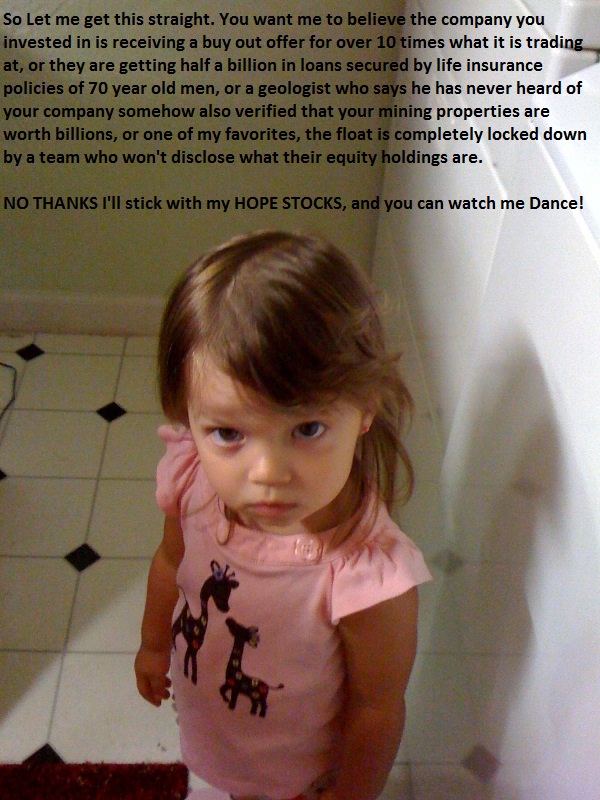Tuesday, August 08, 2017 6:15:37 PM
Based on the facts known by everyone at the time... they left room for interpretation.
The Company’s current understanding is that Roche Enterprises intends to operate the rVue business using the assets acquired in the UCC sale, through a new entity under its sole ownership.
Those assets included the shell. As it was also mentioned in that same PR, that another company possibly wanted the shell.
That statement and the known facts of the time of Roche and family spending $2 Million to obtain 60% of the common equity and still loaning money to the company up until January of this year as well as his board seat, left room for glass half full interpretation.
http://business-law.lawyers.com/small-business-law/fiduciary-responsibilities-corporations.html
Fiduciary Duties of Directors
Under most state laws, directors have two primary fiduciary duties: the duty of care and the duty of loyalty.
Directors’ Duty of Care
The duty of care requires directors to act in good faith to promote the best interests of the corporation. In carrying out their corporate responsibilities, directors are expected to exercise reasonable care and diligence. For example, directors are expected to regularly attend board meetings, to stay informed on important corporate matters, and to take action as appropriate to promote the corporation’s interest and avoid harm to the corporation.
Under the business judgment rule, directors are not liable for a decision that results in harm to the corporation as long as the director acted reasonably under the circumstances. In most states, the business judgment rule creates a presumption that in making a business decision, the directors were reasonably informed, acted in good faith, and that the action taken was in the corporation’s best interests. This includes relying on other experts’ opinions and reports on matters acted on by the board. As long as there was no gross negligence or self-dealing in the decision-making process, directors generally will not be held liable for bad decisions or mistakes that result in harm to the corporation. This rule was intended to protect directors from errors in judgments and mistakes. Without this protection, people might not be willing to serve as directors on boards because of the possibility of liability for business decisions.
Directors’ Duty of Loyalty
The duty of loyalty requires directors to always put the interests of the corporation and its stockholders above their own personal interests. Directors cannot engage in self-dealing and must avoid any conflict between their duty to the corporation and their own personal self-interest. As part of this duty of loyalty, directors must act with utmost honesty and cannot take advantage of their position as director or engage in any secret transactions that benefit them at the expense of the corporation. A breach or violation of this duty typically occurs where directors self-deal to their own benefit and to the detriment of the corporation.
Whenever the corporation is considering entering into a contract or other business transaction with one of its directors, certain procedures should be followed to make sure there is no violation of the director’s duty of loyalty. For example, if a corporation leases property from a director, the director has a conflict of interest and must abstain from voting on the proposed lease. The corporate minutes should show that the director disclosed the potential conflict to the board, that the board had an opportunity to discuss and vote on the transaction without the interested director present, and that the proposed transaction is in fact in the best interest of the corporation. In any situation involving self-dealing or a conflict, the burden of proof is on the conflicted director to establish good faith and fairness.
Fiduciary Duties of Officers
Most boards of directors delegate responsibility for the day-to-day oversight of the corporation’s business to officers of the corporation. Like directors, corporate officers owe a fiduciary duty of care and duty of loyalty to the corporation and its stockholders in carrying out their corporate responsibilities. Officers are expected to act in good faith and to use the same care that a reasonably prudent person would use in similar circumstances in making decisions and taking action on behalf of the corporation. They also must avoid conflicts of interests and self-dealing.
Like directors, officers generally are protected by the business judgment rule for business decisions they make in their capacity as officers of the corporation. This means they are protected from personal liability for reasonable mistakes of judgment or business decisions that turn out to be bad for the corporation as long as they were reasonably informed, acted in good faith, and believed their action to be in the best interests of the corporation.
Fiduciary Duties of Shareholders
Shareholders are not normally subject to any fiduciary duty because their interest in the corporation is one of ownership. Shareholders generally don’t act in any managerial or oversight capacity on behalf of the corporation. Their primary source of control with respect to the corporation is the power to elect the members of the board of directors.
Majority or controlling shareholders may take on fiduciary duties toward other shareholders if they assume control of the corporation through the board. Controlling shareholders owe a duty of loyalty to the minority shareholders of a corporation when they make decisions or take action on behalf of the corporation. If a controlling shareholder engages in a self-dealing transaction with the corporation, the controlling shareholder has the burden of showing that the transaction with the corporation is fair to the corporation and the other shareholders.
Join the InvestorsHub Community
Register for free to join our community of investors and share your ideas. You will also get access to streaming quotes, interactive charts, trades, portfolio, live options flow and more tools.










